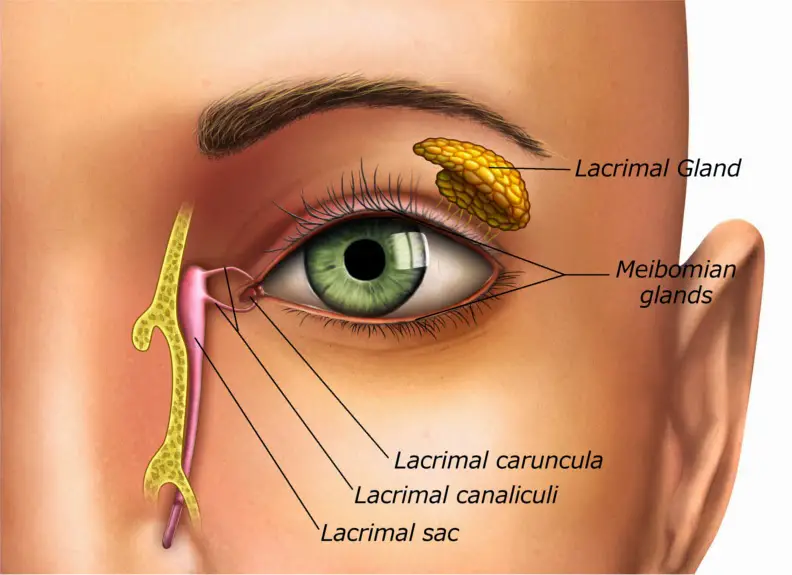You’ve awakened from a blissful night of slumber and feel like your eyes have been wrapped in two Triscuits. They’re crusty and look like a dish drain in the back of an old diner. It takes you a few hundred blinks and a good dousing with water to clear the gunk out. You may begin wondering why that happens almost every morning and where does that goop magically come from?
This eye discharge, or more commonly known as “sleep” in your eyes, eye gunk, eye boogers, or any other sort of disgusting name you can think of, is a mixture of oil, skin cells, and mucus that gathers like revelers to Mardi Gras in the corner of your eyes after a night’s rest. It’s also known as rheum (which would be a much more proper way to describe it), or more specifically, gound, which is a watery discharge that serves a protective function for your eyes. Think of it as a garbage crew cleaning up after a night of fun. The discharge helps clear the front of the eyes of debris or waste as well as to keep the tear ducts free and clear.
You make this mucus during the time you’re awake, and this is washed away by blinking and the lubrication by tears from the lacrimal gland. At night when you’re not blinking, that same eye discharge collects until it forms a lovely crust along the lashes or the corner of your eyes. The watery mucus is secreted by the conjunctiva, as well as the meibomian glands that are located on the upper and lower lids. The meibomian glands secrete an oily substance called meibum that helps seal your eyes when they’re closed as well as keeping tears in check so they don’t flow down your cheeks. When all this stuff gathers and collects, it dries and forms the well-known “eye boogers” or “sleep in the eyes.”
Sleep in your eyes is normal, but any discharge that is green, excessively yellow, or excessive when it is accompanied by pain, blurry vision, or sensitivity to light could mean some sort of eye condition or infection is present. If it’s just normal crustiness, then splash some water on your face, pry it out, and get to work.
Additional Fast Fact: The corner of your eye where most of the gunk accumulates is called the lacrimal caruncle. So the next time you need to describe “sleep in your eyes,” the proper way would be, “I have dried gound in my lacrimal caruncle.”
You might be also interested in Why You’re Taller in the Morning and Shorter At Night.



